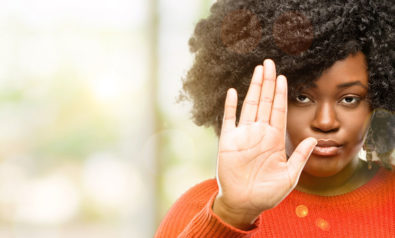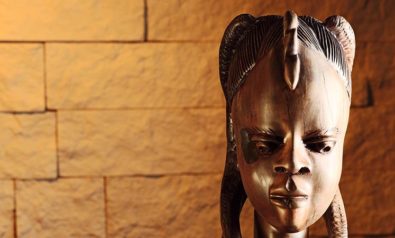If most women are being honest, they would admit to having felt the gender gap at some point in their lives. This can play itself out in a number of ways — in their careers, in their community of peers, in the ways women are portrayed across the media, sometimes even in their own family units. Different parts of the world present drastically different worldviews of the place of women in society and the contributions they make.
Some women are presented with opportunities for upward mobility even as we continue to figure out what gender equality looks like. Some women are still discouraged from working outside the home or engage in activities that have historically been reserved for men only.
360° Context: The Me Too Movement — Changing the Rules of the Game
Given the overwhelming amount of stories concerning sexual harassment that have emerged over the past few years through social media campaigns like the #MeToo movement, we need to question the part institutions, which have traditionally have assigned women a secondary role in society, play in allowing men to see women as lesser human beings.
However, there is one area of life where we hope for more, simply because it lays such a deep underlying foundation of our purpose and our place in the world — and that is our faith.
Women of Faith
As an Evangelical Christian, my faith is the vital lens through which I see the world, myself and others. It allows me to place a grid on top of the brokenness and pain of this world and to see peak holes where the beauty of God emerges. For me, life without God is incomprehensible, for only in Him do I find my purpose and my identity.
That is what faith is, after all — it’s believing that there is a God who has everything in control. All of us ask the hard questions: What is the meaning of life? Why am I here? Why is there pain and suffering? The list goes on. Those of us deeply committed to our faith — whether Christianity, Islam, Buddhism, Hinduism or other — are hopefully able to find answers to these hard questions in such a way that pulls us closer to our God and to understanding the world.
However, for many women, the very faith that brings meaning and identity to our lives is also the space where we can feel the greatest amount of pain. The reason is simple: We are all broken and messed up. The communities where we worship and the people with whom we explore God and His work are sometimes also the very places where we experience the greatest amount of inequality, insensitivity, shame and confusion.
The gender gap is too frequently alive and well in places of worship and among people who claim to be followers of God. This can play itself out in any number of ways, from in extreme cases of having women and men worship in different physical spaces to more subtle applications, such as women being unable to exercise their gifts of leadership or public speaking simply based on gender.
As a Christian woman, I have both felt and watched on as even our faith communities have become confused and conflicted as to the role of women in and out of the church. Within Protestantism, for example, there exist different camps — complementarian and egalitarian — that draw from the sacred text of the Bible for the basis of their beliefs as to the role women can play in the church setting. The complementarian camp draws from passages such as 1 Timothy 2, including “I do not permit a woman to teach or to exercise authority over a man; rather, she is to remain quiet,” and 1 Peter 3, including references to wives being “subject to your own husbands.”
The egalitarian camp references critical texts in Genesis 1 and 2 on the equality of men and women as well as New Testament examples of women prophesying and speaking.
Back to the Beginning
This festering confusion has led to tangible problems such as the recent rash of moral failings which continue to emerge on the church leadership level. We clearly have a problem, and the #ChurchToo movement is a reflection of this. And yet Pew Research tells us that, despite this, women in the United States are more likely than men to say religion is “very important” in their lives (60% vs. 47%) and attend religious services at least once a week (40% vs. 32%).
This is faith. We understand that the communities where we worship are filled with broken people, but that it doesn’t end there. Faith is faith in God — a God who can and will make all things right. So despite the gender gap so many women feel, we don’t flee. But we do pray and talk and cry out for things to be different — and better. We fight on behalf of those women without a voice and we seek to be peacemakers and agents of change wherever we can.
And because we believe God is good and can create change, we press on. As a Christian woman, allow me to offer three simple action points for Christian leaders to consider as we seek to elevate the women in our midst.
First, go back to the beginning. The image of God is imprinted on all, regardless of race, gender, religious or ethnic background, age or socioeconomic status. Genesis 1:27 says, “So God created man in His own image; in the image of God He created him; male and female He created them.” Each person has an intrinsic value and worth that is equally created by God.
Too many in our churches have forgotten this foundational marker of personhood. Our eyes have been set on the things which strip others as equal image-bearers — things like power and money, prestige and celebrity, peer pressure and self-obsession, even low self esteem that pushes us to bolster who we are at the expense of others. All — men and women — have been created equally in God’s image. When our default mindset views men as the keepers of knowledge and final decision-makers in all things, we lose a vital aspect of worship to God — and that is that our worship of God includes the gifts we give back to Him through our service and talents to others.
Consider for a moment that God has gifted a woman with incredible speaking gifts, but she is not allowed to utilize those beyond a small women’s group. Consider if God gifts a woman with business savvy that can change institutions, but she is not allowed to work outside the home due to religious beliefs. Consider, really, the latent and untapped potential that rests with so many women who are held back by their male counterparts. The world, and our worship of God, is stunted as a result of the tiers we put on humanity along gender lines.
Anathema
Second, sit at the cross. Similarly, all are equal at the foot of the cross. The sacrifice of Christ was for all — men and women, children, the poor, the rich, the homeless, the lame. When we don’t value women as we should, we are in essence declaring that we are God — that we get to choose who is more worthy, worth more of our time and energy, sacrifice and love. This is anathema.
When we as Christians think squarely upon the cross and of the savior of the world hanging there, we must ask, Why is he there? For whom did he die? Indeed, it was for that woman who was sexually abused a decade ago and continues in silence. It was for the single mother who is unrecognized week by week as she attends a megachurch. It was for the pastor’s wife who struggles to find her identity as a Christian woman, and for many like them.
Third, model what God set before us. It is striking to read through the Bible and to see the threads of dignity etched on women. We can look at Rahab and Tamar, Ruth and Deborah, Mary and Martha. Never do we see God averting his eyes from women for the sake of men. Never do we catch a glimpse of nonchalance when women are harmed. In the Bible, we see the deep, deep love of God poured out on all His people. We see Him as the rescuer and redeemer, the valiant warrior and sovereign king purposing His will for all to be treated with honor and care.
Religion at its very best is when we understand that when God made all people, He made no mistakes. Allowing our understanding and theology to begin from a place of equal honor and dignity and value sets us all on a path of elevating others above ourselves. As a Christian, I deeply believe in a God who made all equally in His image and who died for all. We are called to model this love to others — to go and do likewise. Only when we begin to recapture a theology of the imprint of God in all can our faith communities truly be places of refuge and equality for all.
The views expressed in this article are the author’s own and do not necessarily reflect Fair Observer’s editorial policy.
Support Fair Observer
We rely on your support for our independence, diversity and quality.
For more than 10 years, Fair Observer has been free, fair and independent. No billionaire owns us, no advertisers control us. We are a reader-supported nonprofit. Unlike many other publications, we keep our content free for readers regardless of where they live or whether they can afford to pay. We have no paywalls and no ads.
In the post-truth era of fake news, echo chambers and filter bubbles, we publish a plurality of perspectives from around the world. Anyone can publish with us, but everyone goes through a rigorous editorial process. So, you get fact-checked, well-reasoned content instead of noise.
We publish 2,500+ voices from 90+ countries. We also conduct education and training programs
on subjects ranging from digital media and journalism to writing and critical thinking. This
doesn’t come cheap. Servers, editors, trainers and web developers cost
money.
Please consider supporting us on a regular basis as a recurring donor or a
sustaining member.
Will you support FO’s journalism?
We rely on your support for our independence, diversity and quality.

















